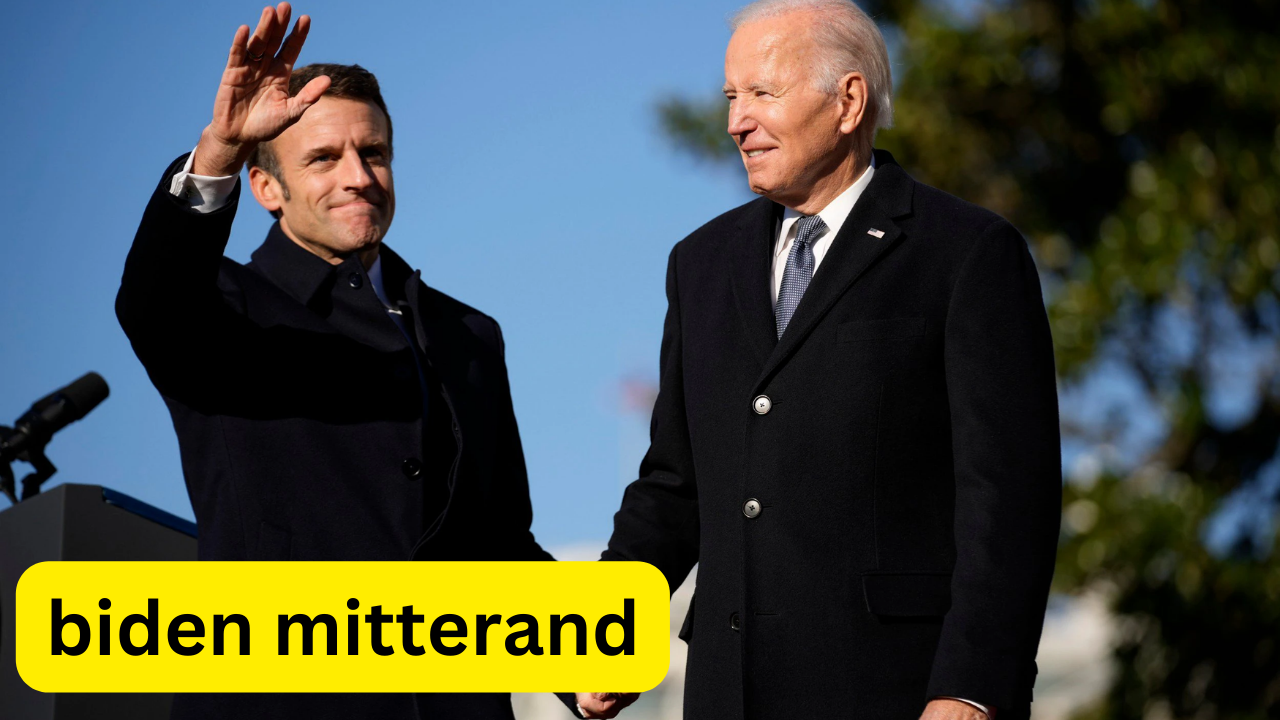The diplomatic relationships between leaders of powerful nations have always been a subject of significant interest and importance. The interaction between President Joe Biden and President François Mitterrand represents a fascinating case study in international diplomacy, revealing insights into how leaders from different eras and political landscapes navigate global politics. Understanding the dynamics between these two influential figures can shed light on the broader context of U.S.-France relations and their impact on the global stage.
Historical Context of U.S.-France Relations
The historical backdrop of U.S.-France relations is rich and multifaceted, spanning over two centuries. This relationship has seen periods of profound cooperation and occasional tension. From the American Revolution, where France played a crucial role in supporting American independence, to the Cold War era, the alliance has been pivotal in shaping global political dynamics.
The Biden Administration’s Foreign Policy
Under President Joe Biden, the United States has aimed to restore and strengthen alliances that were perceived to have weakened during previous administrations. Biden’s foreign policy emphasizes multilateralism, international cooperation, and a recommitment to NATO. His administration has also focused on addressing global challenges such as climate change, pandemics, and cybersecurity threats.
François Mitterrand’s Influence on Global Politics
François Mitterrand, who served as the President of France from 1981 to 1995, was a significant figure in European and international politics. His tenure was marked by efforts to strengthen the European Union, advance socialist policies, and navigate the complex landscape of the Cold War. Mitterrand’s leadership was instrumental in promoting European integration and fostering a sense of unity among European nations.
Biden and Mitterrand: A Comparative Analysis
Leadership Styles
Both Biden and Mitterrand are known for their distinctive leadership styles. Biden, with his decades-long career in politics, brings a sense of experience, empathy, and a collaborative approach to governance. His leadership is characterized by a focus on domestic unity and international cooperation.
Mitterrand, on the other hand, was known for his intellectual prowess, strategic thinking, and a pragmatic approach to politics. His leadership during the Cold War era required a delicate balance of power and diplomacy, navigating the interests of both Western allies and the Eastern Bloc.
Economic Policies
Economic policy is a crucial area where the approaches of Biden and Mitterrand can be compared. Biden’s economic agenda focuses on stimulus spending, infrastructure investment, and tax reforms aimed at reducing inequality and promoting sustainable growth. His administration’s policies are designed to address the challenges of a post-pandemic economy and foster long-term prosperity.
Mitterrand’s economic policies, particularly during the early years of his presidency, were marked by significant socialist reforms. These included nationalizing key industries, increasing social spending, and implementing policies aimed at reducing unemployment and improving social welfare. However, economic challenges and pressures eventually led to a shift towards more market-oriented policies.
Foreign Policy Approaches
Biden’s foreign policy emphasizes rebuilding alliances, reengaging with international institutions, and addressing global challenges through collective action. His administration has sought to strengthen ties with traditional allies, including France, and work collaboratively on issues such as climate change and security threats.
Mitterrand’s foreign policy was shaped by the geopolitical realities of the Cold War. He played a crucial role in advancing European integration, supporting the Maastricht Treaty, and fostering closer ties within the European Community. His approach to foreign policy was characterized by a commitment to European unity and a balanced stance towards both the United States and the Soviet Union.
Key Interactions and Diplomatic Engagements
Biden’s Engagement with France
Since taking office, President Biden has engaged actively with French leadership, reaffirming the strong bilateral relationship between the two nations. His administration has worked closely with France on various international issues, including climate change, global health, and security challenges. Biden’s commitment to multilateralism and international cooperation aligns closely with France’s foreign policy priorities.
Mitterrand’s Legacy in U.S.-France Relations
François Mitterrand’s presidency left a lasting impact on U.S.-France relations. His efforts to strengthen the European Union and promote a cohesive European identity were significant in shaping the continent’s relationship with the United States. Mitterrand’s strategic diplomacy and his ability to navigate complex international landscapes contributed to a stable and productive transatlantic partnership.
Challenges and Opportunities in Contemporary U.S.-France Relations
Addressing Global Challenges Together
Both Biden and Mitterrand have demonstrated a commitment to addressing global challenges through international cooperation. In today’s context, the U.S. and France continue to collaborate on issues such as climate change, cybersecurity, and global health. The Biden administration’s reentry into the Paris Agreement reflects a renewed commitment to tackling climate change alongside France and other global partners.
Navigating Economic and Security Concerns
Economic and security concerns remain central to U.S.-France relations. Both nations face challenges related to economic recovery, technological advancements, and emerging security threats. By working together, the United States and France can leverage their strengths and address these challenges more effectively.
Conclusion: The Future of U.S.-France Relations
The diplomatic relationship between the United States and France, as exemplified by the interactions between leaders like Joe Biden and François Mitterrand, is characterized by a shared commitment to democratic values, international cooperation, and addressing global challenges. As the world continues to evolve, the partnership between these two nations remains crucial in shaping a stable and prosperous global order.
